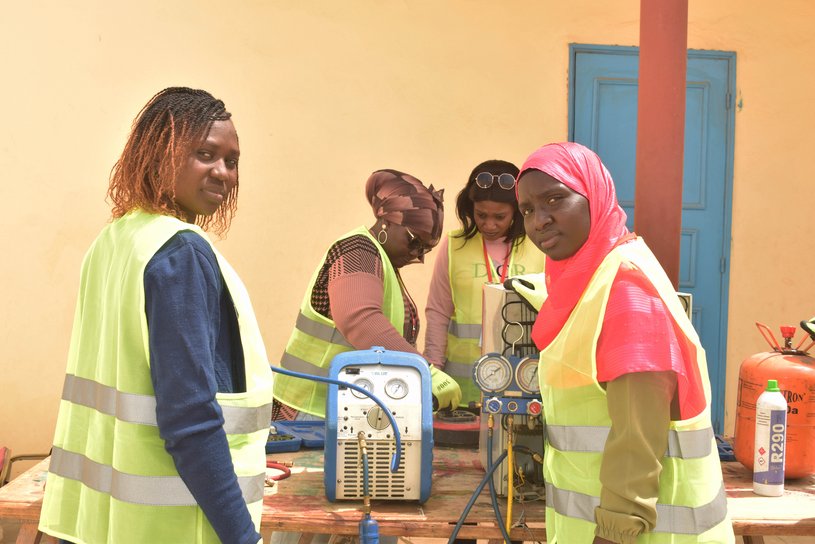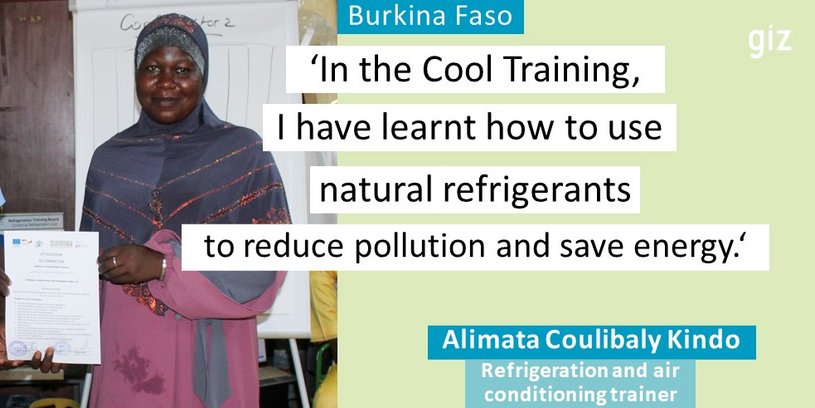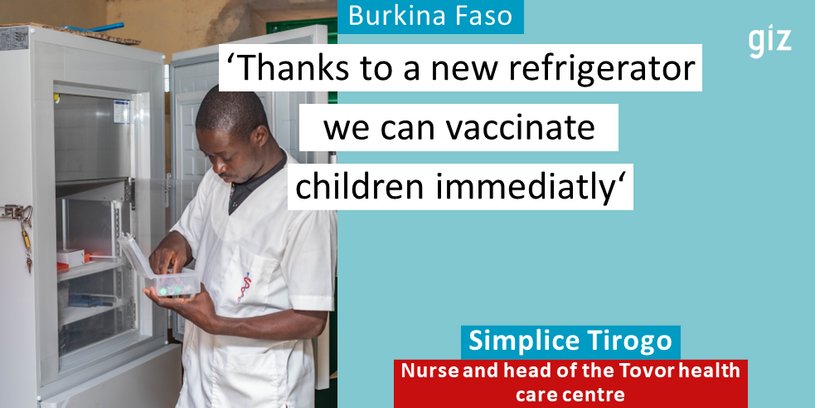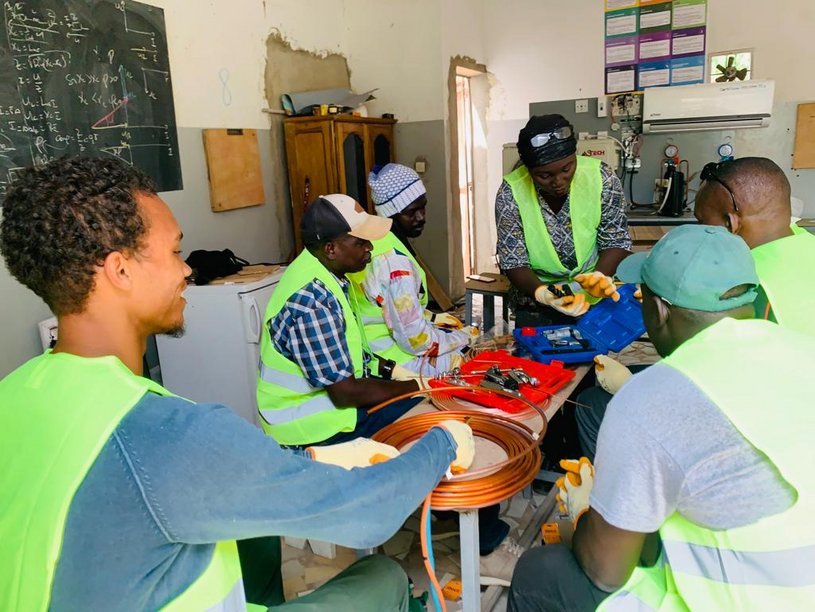Natural refrigerants are the environmentally friendly alternative to refrigerants that deplete the ozone layer and cause greenhouse gas emissions. However, their use requires specific theoretical and practical qualifications so that technicians and even operators can work on refrigeration systems in complete safety.
In Senegal, the refrigeration and air conditioning sector is largely maintained by technicians from the informal sector. These technicians are the first people households turn to when their refrigeration equipment (fridge or air conditioner) breaks down. Also known as refrigeration craftsmen, most of them come from the traditional apprenticeship provided in Individual Production Units (UPI). This traditional apprenticeship is a socially instituted approach to vocational training. It is given on the job and generally concerns people with a low level of education. Traditional apprenticeships lack technical supervision and are not organised on an institutional basis. The teaching is not based on any organised training system that guarantees the transmission of good practices in the refrigeration trade.
Concerns about the depletion of the ozone layer and the climate crisis are addressed by international conventions and protocols ratified by Senegal. These make it possible to reduce and gradually eliminate the use of substances that deplete the ozone layer and greenhouse gas emissions. Natural refrigerants are promoted because they are more environment friendly and, for the most part, have no impact on the ozone layer and contribute little or not at all to the greenhouse effect. However, their use requires the mastery of a number of health, safety and technical challenges, relating to toxicity, flammability or very high operating pressures. This situation requires anticipation of all the measures needed to ensure the safe handling of refrigeration systems operating with these alternative refrigerants. In order to avoid any harmful eventualities, work on these installations requires specific theoretical and practical qualifications to enable technicians and even operators to work on refrigeration equipment in complete safety.
The ROCA project, in partnership with Senegal's Bureau Nationale Ozone (BNO), is aware of the importance of getting all levels of technicians on board for an effective transition to green cooling and has strengthened the capacities of 24 refrigeration craftsmen on the theme of "THE USE OF NATURAL REFRIGERANTS IN HOUSEHOLD COOLING APPLIANCES".
The training, which covered techniques for handling hydrocarbon refrigerants, is focused specifically on:
- International agreements governing refrigerants
- Impact of refrigerants on the environment
- Safety rules for work on circuits charged with hydrocarbons
- Good practices
- Preventive and corrective maintenance of a household refrigeration system using hydrocarbons
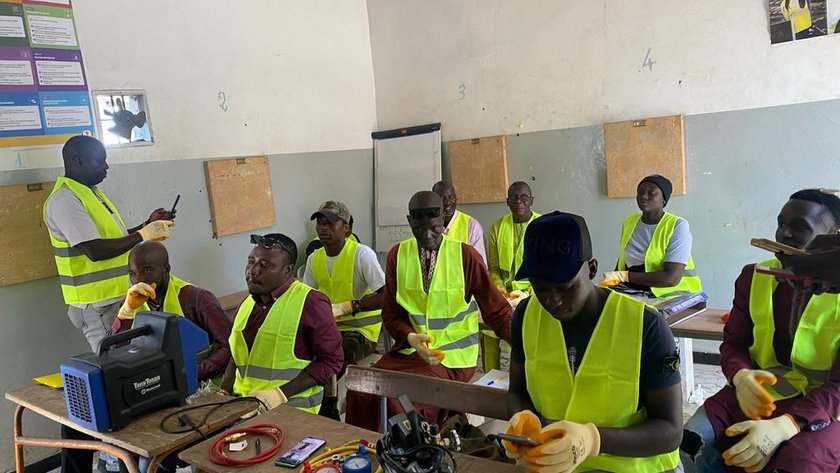
The ROCA project (Ozone and Climate Friendly Cooling in West and Central Africa) (opens in a new window) is co-funded by the European Union and the German Federal Ministry for Economic Cooperation and Development (BMZ) and implemented by GIZ Proklima (opens in a new window).

